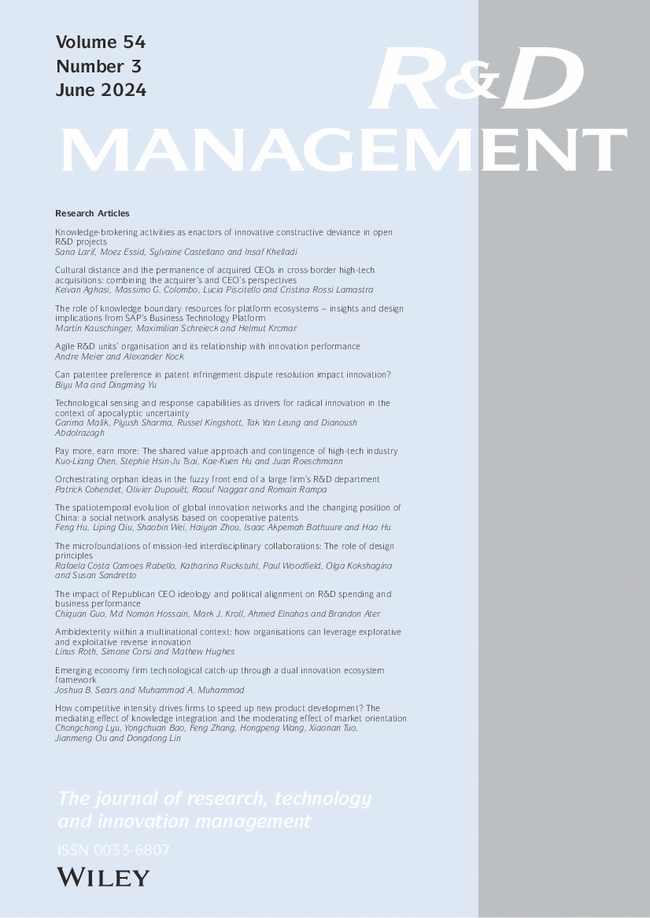对社会具有复原力:来自利用其资源和能力应对COVID - 19危机的公司的证据
IF 5.7
2区 管理学
Q1 BUSINESS
引用次数: 18
摘要
本研究采用弹性视角来解释企业如何设法提供创新解决方案来应对COVID - 19危机。我们研究了五家不同行业的公司(三家汽车行业,一家印刷行业,一家橡胶和塑料制品制造业)如何重组活动,并利用他们的研发和创新能力来增强他们的弹性。同时,它们提高了卫生系统应对疫情的能力。通过定性归纳研究,基于对公司管理者的访谈,我们发现公司在组织层面上调动了他们的资源和能力来扩大他们适应和应对逆境的能力。此外,由于对极端环境的敏感性和感知到的紧迫感,这些公司部署了相同的捐赠来加强社区对危机的反应。我们的研究表明,一个组织可以直接和积极地促进更广泛的社会系统的弹性。本研究通过确定创新能力是组织响应弹性建设的基本前提,为加强弹性与创新之间的联系铺平了道路,为创新文献做出了贡献。本文章由计算机程序翻译,如有差异,请以英文原文为准。
Being resilient for society: evidence from companies that leveraged their resources and capabilities to fight the COVID‐19 crisis
This study adopts a resilience perspective to explain how companies managed to contribute innovative solutions to fight the COVID‐19 crisis. We studied how five companies operating in different industries (three in automotive, one in printing, and one in rubber and plastic products manufacturing) managed to reorganize activities and employ their R&D and innovation capabilities to enhance their resilience. Simultaneously, they increased the health system’s capacity to cope with the outbreak. Through a qualitative inductive study, based on interviews with company managers, we found that the firms mobilized their resources and capabilities to expand their ability to adapt and cope with adversity at the organizational level. In addition, moved by the sensitivity to the extreme context and a perceived sense of urgency, the firms deployed the same endowments to strengthen the community’s response to a crisis. Our study shows that an organization can directly and positively foster the broader social system’s resilience. This study contributes to the innovation literature by identifying innovation capabilities as fundamental antecedents of resilience building for organizational response, paving the way for strengthening the link between resilience and innovation.
求助全文
通过发布文献求助,成功后即可免费获取论文全文。
去求助
来源期刊

R&D Management
Multiple-
CiteScore
11.30
自引率
9.50%
发文量
0
期刊介绍:
R&D Management journal publishes articles which address the interests of both practising managers and academic researchers in research and development and innovation management. Covering the full range of topics in research, development, design and innovation, and related strategic and human resource issues - from exploratory science to commercial exploitation - articles also examine social, economic and environmental implications.
 求助内容:
求助内容: 应助结果提醒方式:
应助结果提醒方式:


